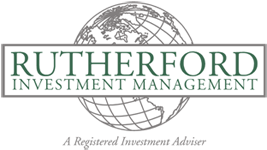Amid the financial meltdown, former Fed chairman Alan Greenspan is a rock star no more
by The Oregonian Editorial Board
He was a legend, the “maestro,” the man who knew how to pull the levers that others couldn’t even see, the man who uttered the market-crippling phrase “irrational exuberance,” who courted celebrity and married the television news reporter, whose absolute faith in free markets led many to declare him the greatest chairman of the Federal Reserve the country had ever known.
Now, with markets crashing and wealth evaporating around the world, he is regarded as the man who steered blindly into a storm, tacking when he should have jibed.
“Man, I loved Alan Greenspan,” lamented Portland economist and business consultant Bill Conerly this month on his Businomics blog, “but it turns out that he is to blame for today’s problems.”
Conerly says Greenspan and many others failed to see that the Fed’s policy of keeping interest rates low was fueling a housing bubble — a bubble that popped and has plunged the world into recession.
In addition, it has become apparent that Greenspan’s arguments in favor of less, not more, regulation placed too much trust in the behavior of bankers and traders. He and they assumed they were doing good jobs of managing their investment risks, when instead they were ignoring them.
This week, Greenspan was treated to a rare dressing-down by members of the House Committee on Oversight and Government Reform. “You found that your view of the world, your ideology was not right, it was not working?” said committee chairman Rep. Henry Waxman, D-Calif.
This is known to lawyers as a leading question.
“Absolutely, precisely,” Greenspan replied. “You know, that’s precisely the reason I was shocked because I have been going for 40 years or more with very considerable evidence that it was working exceptionally well.”
That may be because he was driving by looking in the rearview mirror, relying on historical data to make decisions about current market forces, as former Oregon Treasurer William Rutherford contends in his book “Who Shot Goldilocks: How Alan Greenspan Did in Our Jobs, Savings and Retirement Plans.”
It’s not that any single villain is to blame for the accumulated weight of individual decisions that have plunged us into the current economic debacle, but as Fed chairman from 1987 to 2006, Greenspan was most influential in setting the tone for the economy. He was treated reverently as long as the financial sector was strong and people felt the wealth effect, but it now is clear that he was seeing the world in precisely the wrong way.
Greenspan didn’t exactly apologize about that Thursday, but he probably went about as far as he could, by noting that he was “partially wrong” about trusting bankers to regulate themselves. As a result, he said, today he is in a state of “shocked disbelief.”
In that sense, the maestro is at last one of us.
http://www.oregonlive.com/opinion/index.ssf/2008/10/how_could_mr_right_have_been_s.html
